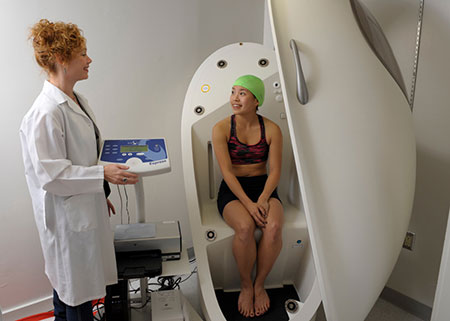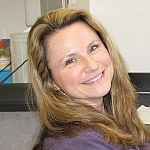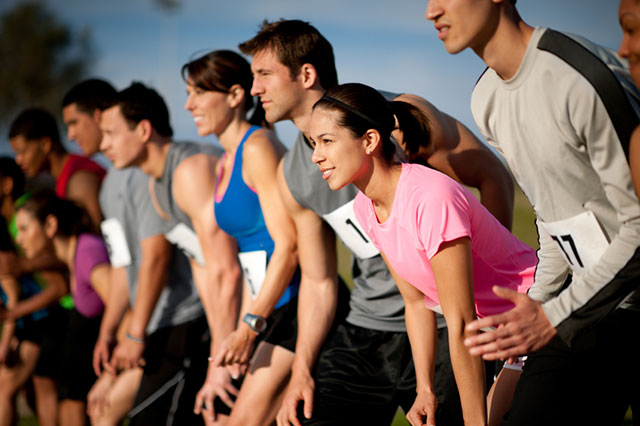We offer measurements of body composition
Body Composition Assessment Measure your body fat and muscle mass with the Bod Pod®, the latest in body composition measurement.
Exercise and training tend to increase muscle mass and decrease fat, but the proportion of these tissues cannot be determined by body weight alone nor by the commonly used ratio of body weight to height, the so-called Body Mass Index (BMI). Using a device called the Bod Pod® (pictured below) we offer an objective measure of body composition that indicates the percentage of fat and lean tissue in your body. This measurement can be used to monitor changes in body fat and lean mass as your fitness training progresses. Elite athletes may also find this measurement useful for following changes in body composition while training for an event.

The test takes only about 10 minutes. Because accurate measurement of body composition cannot be made while wearing loose-fitting clothes, you will be asked to bring spandex shorts and top. Watch this video about the BOD POD process.
| Our Services | |
|---|---|
| BODY COMPOSITION
Body Composition (% fat versus lean; BOD POD) | $75 |
We test athletes of all levels from the tri-state area, including beginners to marathoners, endurance cyclists and triathletes. We are also testing athletes from Yale University Athletics, including football, men’s lacrosse, and the men’s and women’s hockey teams. We are excited to have begun testing local Firefighters.
Exercise physiologists

Nina Stachenfeld, PhD
Director of the Laboratory for Metabolic Testing and Performance
Fellow, The John B. Pierce Laboratory
Senior Research Scientist in Obstetrics, Gynecology, and Reproductive Sciences, and Yale School of Public Health, Yale School of Medicine
Dr. Stachenfeld earned her doctoral degree in Exercise Physiology from Columbia University in 1993. She has over 25 years of experience in performance testing and designing training programs for cyclists, runners, and triathletes using physiological measurements such as maximal oxygen consumption, anaerobic threshold, and body composition.
Her extensive experience includes work with athletes at the Nicholas Institute of Sports Medicine (NISMAT), Lenox Hill Hospital, New York City; well known for its leadership in the field of Sports Medicine and for the care of local professional teams, including the New York Jets, the NY Knicks, and the NY Rangers. At the Pierce Laboratory, Dr. Stachenfeld’s research focuses on reproductive hormone effects on cardiovascular, body fluids, and body temperature regulation at rest and during exercise.

Cheryl Leone, MS
Integrative Environmental Physiology, The John B. Pierce Laboratory
Cheryl Leone joined the John B. Pierce Laboratory as a research assistant in 1991. She earned her MS in Exercise Physiology from The University of Connecticut and a BS in Exercise Science from the Pennsylvania State University. Ms. Leone currently works in the Laboratory of Dr. Nina Stachenfeld researching the effects of estrogen and progesterone on the fluid regulatory systems in humans. She is a former gymnast and nationally ranked Olympic weightlifter.



